This November, my blog will be 16 years old. To celebrate that, I have asked you, my readers, to submit a Guest Post for my blog as a way of celebrating our connectedness as a community through social media.
I hope you will send me your story or a glimpse into your life. I feel I know so many of you through the comment section and emails; I hope this will introduce you to one another. Thank you in advance for being part of French la Vie / Tongue in Cheek.
_______
I am beyond honored to be Corey’s first ever guest blogger! I’ve been following Corey Amaro for more years than I can remember, first with her blog (when it was called “Tongue in Cheek” which it still is called in my bookmarks…), then on Instagram and now on Facebook. Over the years we have become friends, which is so strange because we have never met each other. You start chatting from miles away and before you know it, you’re friends.
Corey asked me to talk about my career, which is really an unusual one. I’m one of 80 full-time choristers at the Metropolitan Opera in New York City. As a chorister, I sing in the chorus of every assigned opera in English, French, Italian, Russian, Czech, German, Sanskrit, and American Profanity. I stand for hours on raked stages while wearing outrageously uncomfortable costumes and (sometimes) two-foot tall wigs. The Met Opera performs about 24 operas a year, with nighttime performances Monday through Saturday and matinees on Saturday and many Sundays. We perform at night and rehearse during the day. A typical day starts at 10 am and ends just before midnight. I perform at the highest level of my industry with pride. It’s been a wild 24 years.
How did this all start, and how in the world does someone end up singing full-time in one of the largest Opera Houses in the world? My parents tell me that I was singing and matching pitch before I could even talk. My father was a Baptist Minister in Princeton NJ, where there was so much wonderful choral music, thanks to Westminster Choir College which is located near the campus of Princeton University. So, I grew up hearing that, and as soon as I could stand up and behave myself properly, I was singing in the children’s choir of my father’s church. It was my favorite activity, and I sang all the time. My very first solo performance was in that church when at the age of about 10, I sang Handel’s “Where E’re You Walk” and Purcell's “Passing By” for the Mother-daughter banquet. With a doting audience and rave reviews, it was an auspicious start…and I was hooked.
When my family moved to Ohio, I started High School and began singing in the choir. Ohio has a great tradition of High School Choral competitions, and I started participating in them and also High School Solo competitions early on. I was no big winner, but this experience was a huge advantage in learning how to control my nerves in future auditions. By the time I had to do auditions professionally, I had been doing it for years.
From there I went to Ohio University in Athens OH intending to study Music Therapy. Before the end of my first semester, my teachers convinced me that I should really be studying voice and preparing for a career in Music. So that’s what I did. I studied, won competitions, sang several roles with the Opera Theater and had a blast. Being a big fish in a small pond is a great way to build confidence in a performer.
When I graduated from college, I moved to Philadelphia and lived with my sister and brother-in-law and their new baby for several months and found my way to Temple University, where I met my teacher, Dr Christine Anderson. Chris is the person who really taught me the technique I depend on today. To pay for Grad school, I got a job at a local hospital as an Admissions Clerk, which I discovered I loved. I would go to school during the day, and I would work the evening shift at the hospital. It was great fun, but after a while, I was broke and exhausted and I left school. Every good success story has some forks in the road, right? This one is mine.
After I left school, I worked my way through positions of greater responsibility in the field of Health Care until I ended up at the Hospital of the University of Pennsylvania in the Department of OB/GYN. I was hired to manage a Federal Grant intended to reduce infant mortality in West Philadelphia. It was important, invigorating work, and I loved it. Of course, during this time, I was still singing. I had found a home with the Choir of the Church of St. Martin-in-the-Fields, and I was very happy. But after 10 years of Mom and Dad asking when I was going to get back to pursuing my singing career, I contacted my teacher and began again. I took lessons with Chris, I worked with Vocal Coaches, I took language and movement classes and I continued working part-time so I could pay for all of it. I studied privately for a few years and then started auditioning. Believe it or not, one of the first auditions I did was for the Chorus of the Metropolitan Opera. There were 400 people at that audition but I knew something was right, and it was. When they hired me, I left my job and home in Philadelphia and moved to New York City. I have been a full-time employee at the Met ever since.
What’s it like being a full-time chorister? IT’S HARD WORK. It’s also incredibly exciting. You work hand in hand with a very large group of people. You spend all your time together making this incredible art in very close quarters. Singer’s personalities tend to be very big, so there is a lot of negotiating that mine-field. Tempers inevitably flare, but so does deep love and appreciation for each other. The costumes are hot, heavy, and cumbersome. But also incredibly detailed and beautiful. If you had told me when I was 10 years old that I would have over 20 ball gowns custom built for me to wear on stage while I was singing…I would never have believed you. It’s a real dream come true, even with all the sweat and tears, and aching back knees and feet.
A typical day starts with a morning rehearsal on stage, blocking a scene with the actors and sometimes the soloists. This can be tedious, but also a lot of fun. We portray gypsies, noblemen and women, peasants (so many peasants) nuns, priests, imaginary characters, you name it, we have done it. When the first stage rehearsal is over for the day, we will either have a musical rehearsal with our boss, Chorus Master Donald Palumbo or have another staging rehearsal. We rehearse several operas at the same time, so it is not unusual at all to switch gears between languages, styles, and eras in one day. How do we keep it all straight? I have no idea. We just do. We’re all highly trained professional singers, and keeping all the balls in the air at once is just something that comes naturally at this point. Oh, did I mention that last season we actually had to learn to juggle for the production of Philip Glass’s Ahknaten? Yep, singing some of the most challenging music we have learned, in a language none of us know (anybody ever study Ancient Egyptian?) we had to juggle. We had so much fun. I am happy to report that we kept almost all the balls in the air.
When rehearsal for the day is done, we’ll have a break of several hours where we can manage the things that need to be done in our private lives. For some people that’s an exercise class, running errands, or taking a much-needed nap. For others, it’s rushing home to be with the kids for a few hours. Then it’s back to work to prepare for that night’s performance. Every day is different. Not every opera has a chorus and not every opera that has a chorus requires all of us. So, we can have long stretches of 7 shows a week with daily rehearsals, long stretches of no work at all, or a million different combinations of that schedule. Time off is precious, and we get very little of it during the season. Our time off is during May, June, and July when the opera house is taken over by the American Ballet Theater. We normally go back to work in August, beginning with daily musical rehearsals, learning the music for that season.
Normally at this time, I would be in the first week of the new season. But of course, last March, the Metropolitan Opera closed. We were paid for the remainder of the month, and our health coverage is in place for the duration of the pandemic, but that was all. We were devastated, but hopeful that by the time the summer was over, we would be back to work as usual. That was not to be. On Tuesday we learned that the entire 2020-2021 season has been canceled. I am one of the fortunate ones. I have been at the Met long enough to be eligible to retire with a pension, but many of my younger colleagues are not as secure, and these are scary times for them. I have not yet decided if I will retire or not, but I might not have a choice. It’s a sad way to end a long and wonderful career, but if that’s how it works out, I will have no regrets. It’s been an experience of a lifetime.
So, what’s next? I have had a long love affair with France. I've been studying French since the 6th grade and singing in French since High School, so I have a deep love of the language. But I did not visit France until 2002 when I went to St Victor-la-Coste to work on a project restoring a medieval castle. I loved it so much I went two summers in a row. When I met my husband Stephen, I asked if he wanted to go with me and rent a house near Uzès for a month. We have been returning to the Uzès area almost every summer since. Our plan has always been to live there for at least a year when I retire, so when France finally opens up to US citizens, I can think of no better time to go and to start a whole new chapter of this incredible adventure. And maybe it’s time I finally met Corey, and give her a really long overdue hug.
I asked Rebecca …
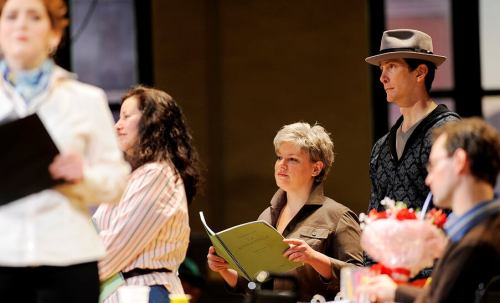
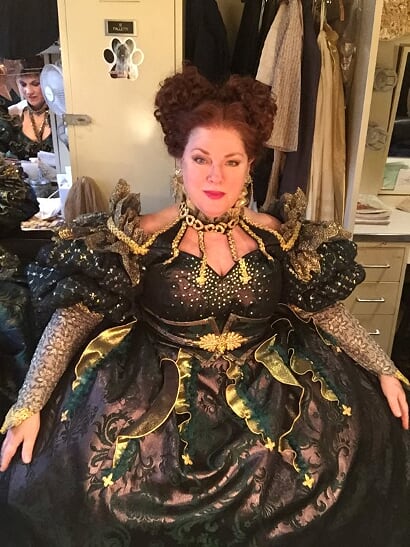
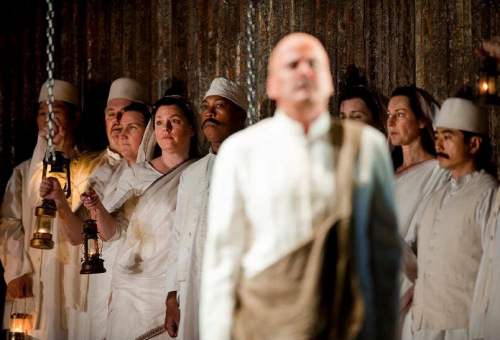
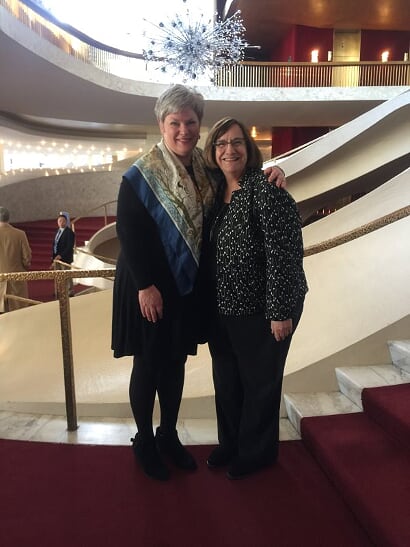
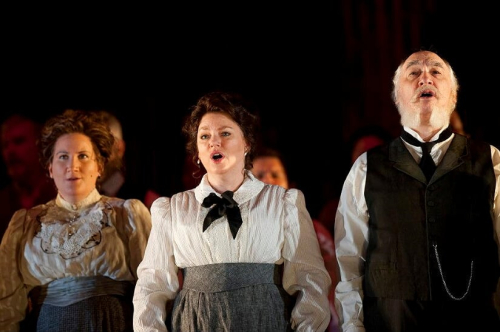
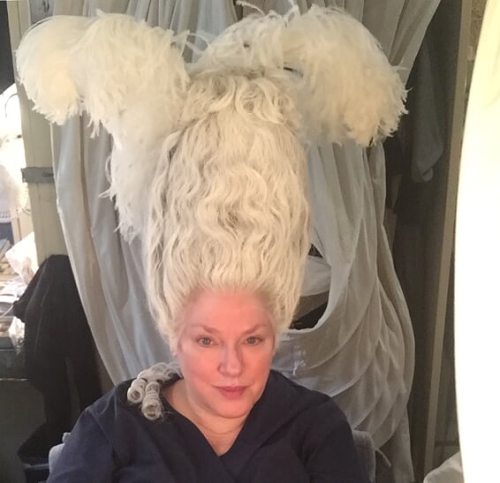
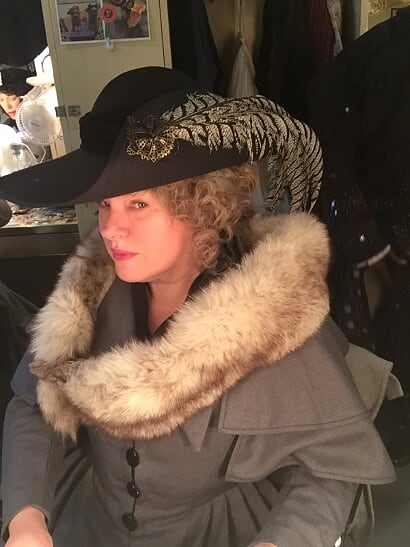
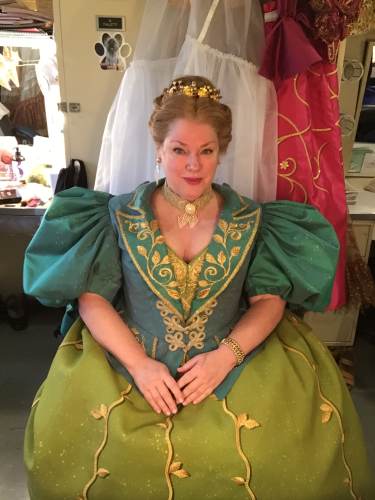
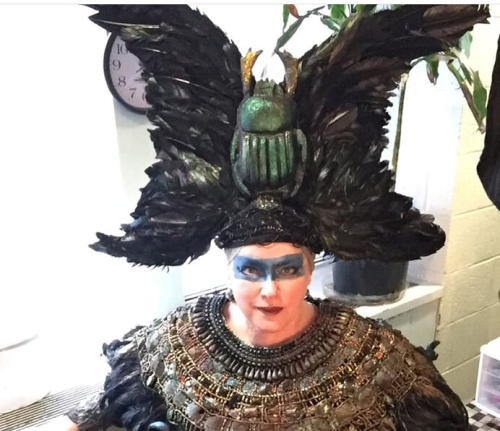
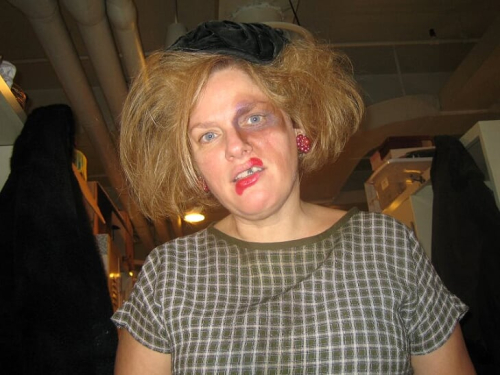
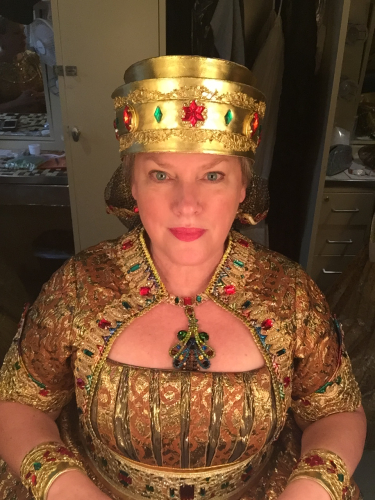
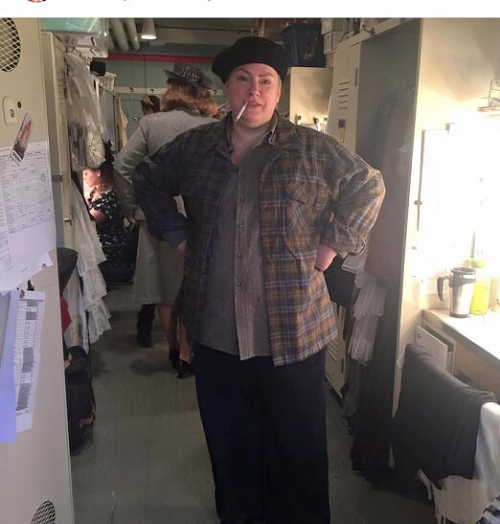
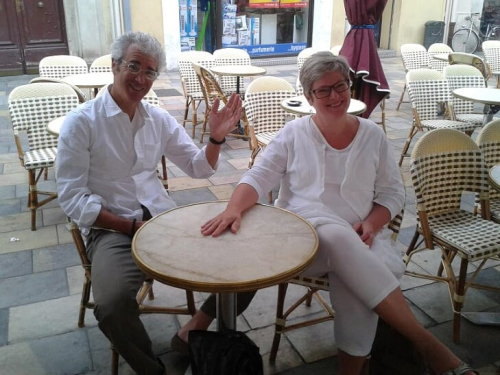
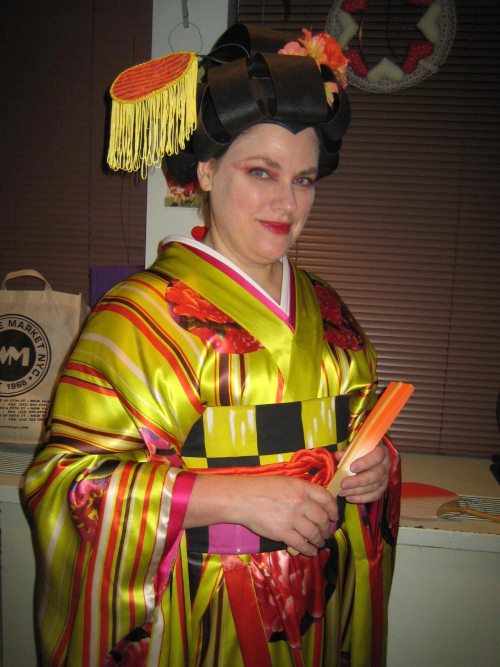

Leave a Reply